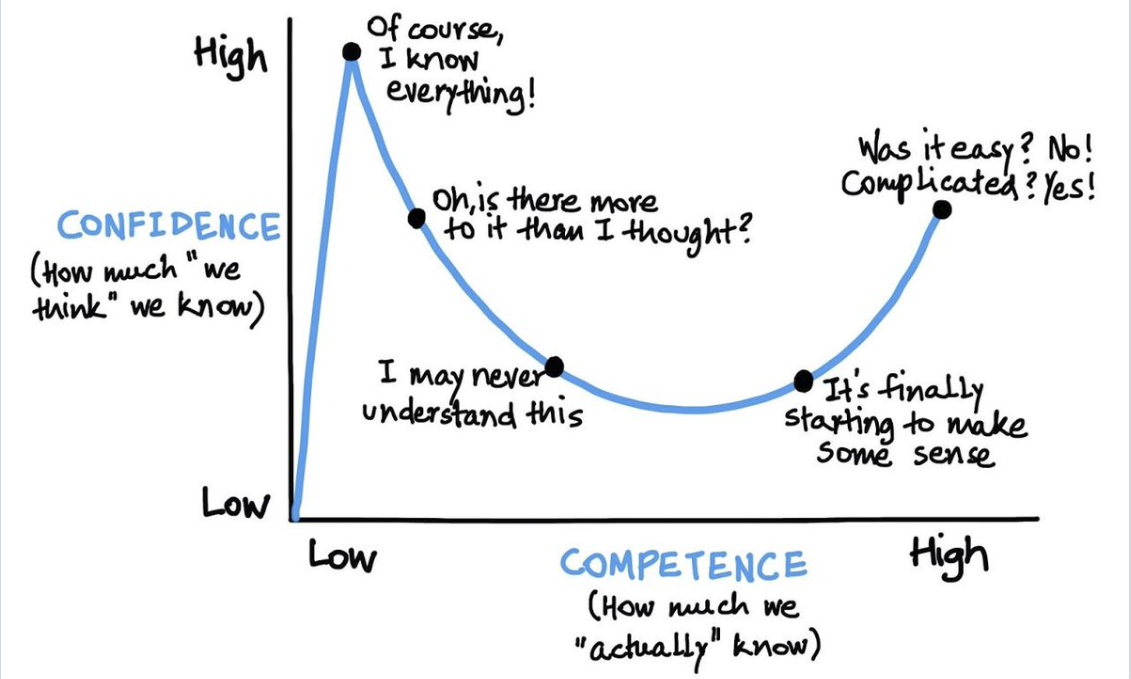
Have you ever witnessed a colleague confidently present, only to realize they’re missing key insights? This scenario is a classic example of the Dunning-Kruger effect.
This cognitive bias reveals a paradox: individuals with limited knowledge in an area often overestimate their competence, while true experts often underestimate theirs. In the workplace, this can lead to overconfidence and poor decision-making, impacting team dynamics and project outcomes.
Why does this matter? It’s not just about spotting the bias in others; it’s a reminder for us to practice introspection and humility. Recognizing our limitations and valuing continuous learning reshapes our approach to expertise – it’s not about what we know, it’s about being open to what we don’t know.
👉 Dive into this post https://bit.ly/3RU1Faz to explore how the Dunning-Kruger effect manifests in various aspects of life, from business decisions to everyday interactions. Learn about its causes, its impact on personal and team growth, and how fostering a culture of feedback and self-awareness can help us all avoid the pitfalls of overconfidence.
🔍 Have you encountered the Dunning-Kruger effect?